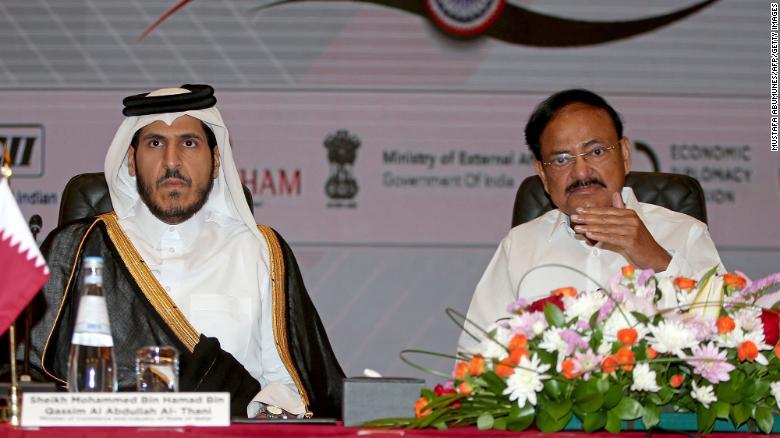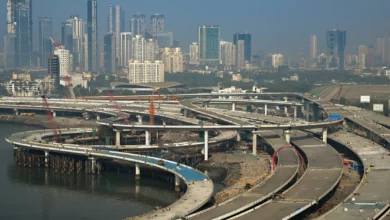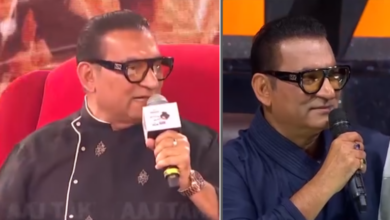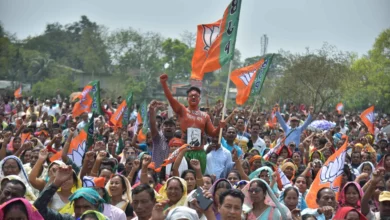
Abu Dhabi, UAE and New Delhi, India (CNN) – It took India less than 24 hours to discipline two politicians after a controversy that had been brewing at home for over a week caught the attention of its Arab trade partners.
India’s ruling Bharatiya Janata Party (BJP) on Sunday suspended a spokesperson and expelled another official after derogatory comments they made about Islam’s prophet led to an outcry in Arab countries.
“India was taken aback by the response,” said Kabeer Taneja, a fellow with the Observer Research Foundation, a think tank in New Delhi. “Communal issues are not new in India and in previous cases, we have not had such a response [from Arab states].”
On May 26, BJP spokeswoman Nupur Sharma made comments on an Indian news channel about Prophet Mohammad that were deemed offensive and Islamophobic. Qatar, Kuwait and Iran summoned India’s ambassadors, and the Gulf Cooperation Council, Saudi Arabia, the United Arab Emirates and the Organization of Islamic Cooperation issued statements of condemnation. At least 14 countries have so far condemned the remarks.
Sharma said on Twitter she had “said some things” in response to comments made about a Hindu god but it was “never my intention to hurt anyone’s religious feelings.”
“If my words have caused discomfort or hurt religious feelings of anyone whatsoever, I hereby unconditionally withdraw my statement,” she said.
Most Indian news outlets reporting on the story didn’t directly quote Sharma’s original comments.
Naveen Jindal, a BJP leader, was expelled from the party over comments he made about Islam on social media, the BJP office said.
Analysts said Indian Prime Minister Narendra Modi has walked a tight rope between keeping his Muslim international allies happy while pushing his party’s Hindu nationalist agenda at home.
“Modi has tried very hard to prevent his party’s domestic political agenda from spilling over and poisoning India’s relations with the Gulf states,” said Hasan Alhasan, a Bahrain-based fellow at the International Institute for Strategic Studies who researches Indian foreign policy in the Gulf. “The extent to which Sharma’s comments have clouded India’s relations with the Gulf states is unprecedented, and that’s of course because she is, or was, the spokesperson of the BJP.”
Taneja said the Indian government has realized that a lot of religious rhetoric “has been taking place for a while and has been going unnoticed, but it will not go so anymore.”
The hashtag “Anyone but the prophet, oh Modi” was trending on Twitter in all six Gulf countries, and as far away as Algeria, with residents in Muslim nations calling for a boycott of Indian products. Oman’s outspoken Grand Mufti Sheikh Ahmad Al-Khalili, the chief religious figure in the country, called Sharma’s comments “a war on all Muslims” and a matter that “calls for all Muslims to rise as one nation.”
Offending depictions of Islam’s prophet have in the past led to mass boycotts, diplomatic crises, riots and even terror attacks.
The controversy comes as Gulf states and India look to significantly enhance their economic partnership. India, the world’s third-biggest importer of oil, looks to the Middle East for 65% of its crude imports. On the other hand, the Asian nation sends millions of workers to the Gulf states who send home billions of dollars in remittances.
“There are over 8 million non-resident Indians across the Gulf. The Gulf states are key sources of India’s oil and gas imports, and bilateral trade is over $100 billion,” said Alhasan. “So it is a very important set of relationships from the Indian perspective.”
The UAE alone, where some 3.5 million Indians live, accounts for 33% of remittances to India, at more than $20 billion a year.
The UAE has singled out India among seven other nations as its future economic partner. India’s Minister of Commerce and Industry Piyush Goyal has said the Gulf nation plans to invest $100 billion in his country, in part for manufacturing and infrastructure.
This year, India signed a free trade agreement with the UAE, its first in more than a decade, and has eyed the rest of the Gulf states for similar agreements, according to news reports. The UAE pact aims to see annual trade rise to $100 billion in five years and contribute to the creation of hundreds of thousands of jobs in India.
Abdulaziz Sager, chairman and founder of the Gulf Research Center in Jeddah, Saudi Arabia, said that nature of India-Saudi relations gives Riyadh political and economic leverage over the Indian government.
“I don’t think that will have a jeopardizing effect in terms of the economic or political relations because India is still an important country,” said Sager. “It is an important relationship but Saudi Arabia is not going to accept any sort of insult to the Prophet or undermining of religious Islamic issues,” said Sager.
There are more than 2.2 million Indians in Saudi Arabia, according to Indian officials.
Taneja said India knows the clout Gulf states have over it because of the diaspora in those countries. “That is why we saw such a brisk response from the government.”
CNN’s Esha Mitra contributed to this report




